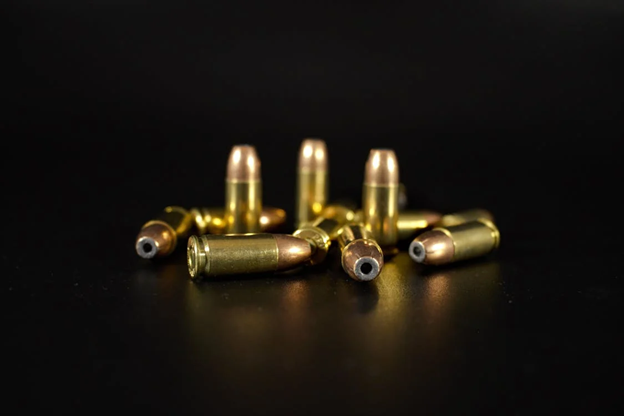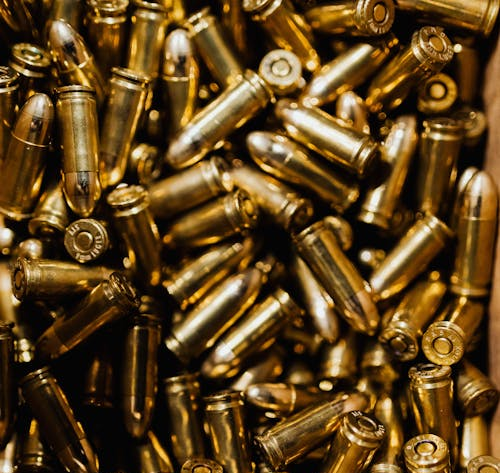Aside from capitalizing on a rare deal, buying 9mm bulk ammo is arguably the best and most straightforward way to stock your ammo cans cost-effectively.
But you want to get ammo you’re actually going to shoot. If all you do is compete or plink, you won’t want to pay for 1000 rounds of HP 9mm, not just because it’s expensive but because it likely won’t offer you the same performance at the range.
So, with that said, here are a few ways to shop 9mm bulk ammo to make sure you’re getting a proper deal.
Casing Type
First, let’s talk about casing type. There are three main options, which are brass, aluminum, and steel.
Brass is by far the most preferred despite the higher cost because brass casings resist corrosion but more importantly, they can be reloaded
If you care for your spent casing and properly trim and if necessary resize them, you can get several reloads from them. They can be reloaded until they show signs of wear, with most shooters agreeing they can get 5 reloads from quality brass, and some getting as many as 8.
However, since we’re talking about 9mm bulk ammo savings here, we have to look at two other alternatives, aluminum and steel.
Aluminum-cased ammo, like CCI Blazer Aluminum, is generally more affordable than brass cased ammo. Aluminum, like brass, is corrosion resistant, and aluminum-cased ammo performs well in most guns, but aluminum casings generally cannot be reloaded.
Then there is steel-cased ammo, like TulAmmo, which is highly popular for one reason and one reason only: it’s cheap.
Steel cased ammo should not be reloaded, but it is good for that one shot. The other thing to address here is the pervasive myth that steel-cased ammo will ruin a gun.
It won’t. Steel-cased ammo is made with annealed steel; that is, softened steel, which won’t scratch or otherwise damage your chamber.
Bullet Type

The most important thing to look for in 9mm bulk ammo is the bullet type. Broadly speaking, there are only a few main types we will be looking at.
The first is FMJ, which means full metal jacket. FMJ bullets have a lead core covered with a copper jacket wherein only the base of the bullet is exposed. FMJ ammo is cost-effective, highly accurate, and feeds reliably. This makes it perfect for training and competition. It also helps minimize lead fouling in your bore. A similar alternative is TMJ, or total metal jacket, in which the base of the bullet is covered by the jacket. TMJ ammo offers all the same advantages of FMJ, with the difference that it offers better protection to lead exposure.
One distinct class of FMJ ammo is called “wadcutter” ammo. It is the same as jacketed ammo except it has a flat nose that punches clean, round holes in targets, making scoring easier. In some competitive shooting disciplines, wadcutter ammo is preferable.
Then we have hollow point bullets, which are usually also jacketed. These bullets are designed for rapid expansion within a target, maximizing energy transfer and stopping power. They also tend not to overpenetrate. However, hollow point ammo tends to be more expensive and sometimes does not feed as reliably as FMJ ammo, so it should be reserved for defensive training, or for defensive or sporting applications.
Bullet Weight
Bullet weight is another important consideration you should take when looking at 9mm bulk ammo deals.
All else being equal, the heavier the bullet, the more recoil it will produce. Heavier bullets also tend to penetrate targets better.
As a result, lighter ammo is generally preferred for training and drilling, as it doesn’t produce as much recoil and the extra power is not needed.
On the flipside, if you hunt with a handgun or carry one for defensive purposes, then heavier bullets may be necessary. It all ultimately depends on your intended application.
Muzzle Velocity and Energy
Lastly, we need to understand two important metrics which are closely interrelated: muzzle velocity and energy.
Muzzle velocity is the speed, measured in FPS or feet per second, at which bullets are moving when they leave the muzzle. Muzzle energy is the energy, measured in ft-lbs or joules (J), that bullets carry at the muzzle.
Higher muzzle velocities generally correspond to higher energy, although the weight of the bullet also impacts this.
High speed, high energy rounds are generally not necessary for training purposes, so if you are just looking to get a deal on 9mm bulk ammo for range training purposes, you can go with lighter, slower rounds.
However, if you are looking to get a deal on defensive ammo, the higher speed and energy also translate to higher stopping power. Look for higher velocity or energy ratings, or a “+P” which indicates the rounds are loaded with more propellant or heavier bullets in order to deliver more energy.
Saving on 9mm Bulk Ammo

Regardless of what you’re looking for in 9mm bulk ammo we can help you save. Shop our collection and make sure to bookmark our page on police trade-in specials so you never miss a deal.

